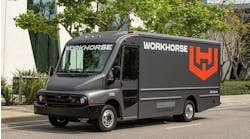MANAGERS: Patrick Vaughn and Ron Halley
TITLES: COO and vice president of fleet and facilities, respectively
FLEET: Student Transportation, Wall, NJ
OPERATION: Contract school bus fleet of over 9,300 units operating in 14 states and Canada
Problem: It’s one thing to talk about switching to an alternative fuel in order to make a fleet “greener,” but quite something else to save money and maintain operational efficiency while doing so. That becomes even more problematic when the cargo your fleet hauls is children heading to and from school, often in unforgiving climates. It’s nice to go green, but not if such a move ends up leaving kids potentially stranded on stalled buses.
That’s why when the school districts served by Student Transportation Inc. and its subsidiary Student Transportation of America (STA) wanted to move away from diesel, the company took a long, hard look at how a switch to propane might impact its operational costs.
“Our customers wanted a cleaner yet more cost-effective fuel, so we spent three years investigating propane,” says Patrick Vaughn, STA’s COO. “It’s a big deal for school districts simply because of how much can be saved on fuel costs. For example, one of our school district customers in Texas saves $200,000 in fuel costs by using propane instead of diesel. That savings translates into the salaries of three extra teachers.”
The rub for STA is how to help school districts achieve fuel savings without increasing maintenance or other operational costs for itself or its customers.
Solution:
After three years of research, STA settled on the propane propulsion package developed by Roush CleanTech, which powers a 6.8L V8 engine in buses built by Blue Bird Corp. In fact, STA recently signed a contract with the Metropolitan Omaha Education Consortium Interlocal Transportation Assn. in Nebraska to provide 530 vehicles, including over 400 of those propane-powered Blue Bird school bus models, in August of this year.
Ron Halley, STA’s vice president-fleet and facilities, says those propane-powered buses offer lower maintenance costs, allowing STA to generate long-term savings and offset the higher initial purchase price for propane-powered buses. “The propane-powered buses cost more than diesel-powered units, but as the typical ownership cycle is 12 to 13 years, we expect to see some lifecycle savings,” he explains.
Those savings come from a number of key differences between diesel and propane engines. For starters, the engines don’t require either a diesel particulate filter to scrub soot particles from the bus exhaust or selective catalytic reduction to eliminate oxides of nitrogen.
Halley notes that the propane engines are “naturally aspirated,” meaning they don’t require turbocharging, another component that’s not only expensive but requires regular preventive maintenance (PM) service over time.
When it comes to PM service, Halley found that the propane-powered engines only require seven to eight quarts of motor oil versus the 16 typically required by the diesel bus engines used by STA.
“I’ve been involved with taking care of trucks for 37 years, and these propane engines are what I like to call ‘simplified,’” he explains. “They are spark-ignited, direct-injection, liquid-powered engines—nothing we haven’t seen before. In fact, the injection pressures are far lower than the 30,000 to 40,000 psi seen with modern-day diesels, so we expect to see longer injector life over time.”
More importantly, however, the propane-powered buses operate just fine in cold weather. “Propane doesn’t have the same Btu energy content as diesel, so it takes more to travel the same distance. But that can be offset by the maintenance savings over time,” Halley says. “Simply put, we’ve got a good knowledge base to draw from to take care of propane-powered buses.”


